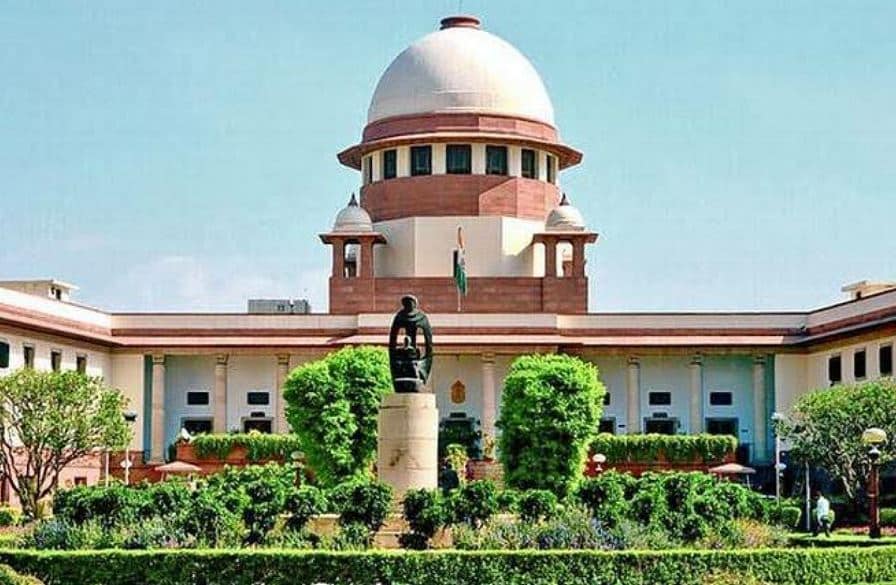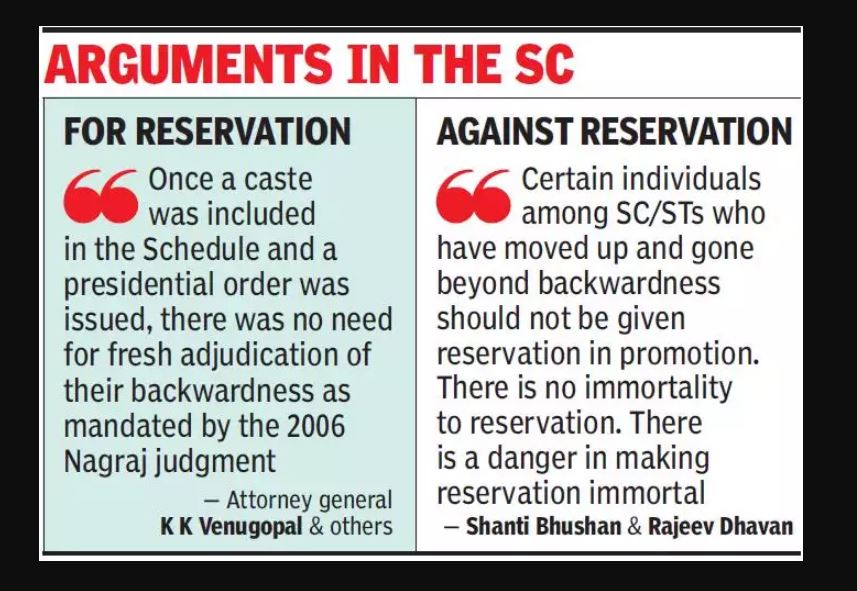Reservation in Promotion is not a fundamental Right | UPSC – IAS
The apex court observed the state government has the absolute discretion to decide whether or not to provide for reservation in jobs or reservation in promotions. The Supreme Court ruled that- There is no fundamental right to reservations in appointments and promotions under articles 16(4) and 16(4A) of the Constitution.
- The case pertains to a decision by the Uttarakhand government in 2012. Back then, the government had decided to fill up posts in public services without providing reservation to members of the Scheduled Caste (SC) and Scheduled Tribe (ST) communities.
Supreme Court held that | UPSC – IAS
- Article 16 (4) and 16 (4-A) are in the nature of enabling provisions, vesting a discretion on the State Government to consider providing reservations, if the circumstances so warrant.
- Article 16(4) empowers state to make any provision for reservation of appointments in favour of any backward class which in opinion of the State, is not adequately represented in the services under State.
- Article 16(4A), empowers state to make provisions for reservation in matters of promotion to SC/ST employees.
It is settled law that the state cannot be directed to give reservations for appointment in public posts. The order further adds that the state is not bound to make a reservation for SCs and STs in matters of promotions.
- The court said that no mandamus can be issued by the court directing state governments to provide reservations.
- However, if the state wishes to exercise its discretion and make such provision, it has to collect quantifiable data showing ‘inadequacy of representation of that class in public services.
- If the decision of the state government to provide reservations in promotion is challenged then the state concerned will have to place before the court the quantifiable data that reservations became necessary on account of inadequacy of representation of SCs and STs without affecting general efficiency of administration as mandated by Article 335.
Analysis of the judgement | UPSC – IAS
- The fact that reservation cannot be claimed as a fundamental right is a settled position under the law and has been pointed out by several judgments in the past.
- In 1967, a five-judge bench in C.A. Rajendran v. Union of India held that the government is under no constitutional duty to provide reservations for SCs and STs, either at the initial stage of recruitment or at the stage of promotion.
- The position went on to be reiterated in several other decisions, including the nine-judge bench ruling in Indra Sawhney v. Union of India (1992) and the five-judge bench decision in M Nagaraj v. Union of India (2006).
- Although this position of law is a settled one, it is nonetheless at odds with certain other principles at the heart of the constitutional vision of equality.
- In NM Thomas judgement (1976), the Supreme Court held that the Constitution was committed to an idea of substantive equality, i.e. it had to take the actual circumstances of people into account when determining what constituted “equal treatment”.
- The principled reason for this position was that groups of people who face structural and institutional barriers towards being able to compete on “equal terms” with others in society — for reasons that are historical, but whose effects are enduring – must be treated in a way that mitigates those existing conditions of inequality.
- Reservations – under this understanding – were a means to bring about genuine and true equality, and not a set of privileges or gifts.
- To interpret the obligations of the state purely from the textual foundations of Article 16 is not an appropriate approach. Fundamental rights are not isolated provisions and ought to be looked into as an interconnected whole.
- As there are less avenues for the direct appointment in higher posts, reservations play a major role for the representation of backward classes in higher posts.
- According to a Parliament reply last year, only one of the 89 secretaries posted at the Centre belonged to the SC, while three belong to the ST. The court order may go against the substantive equality in higher posts.
- The Supreme Court is not wrong in saying that a writ of mandamus cannot be granted by any court in order to enforce an enabling provision. The writ of mandamus is issued only to compel an authority to discharge a binding duty.
Conclusion | UPSC – IAS
- It is a settled principle of law that a discretionary power cannot be exercised in a fickle manner. Simply because the exercise of a power is optional for the government does not mean that it can be exercised in a whimsical manner.
- Article 14 of the Indian Constitution has been interpreted to prohibit all kinds of arbitrary decisions by the government. Thus, the courts are entitled to examine if a discretionary power has been exercised in a judicious manner.











